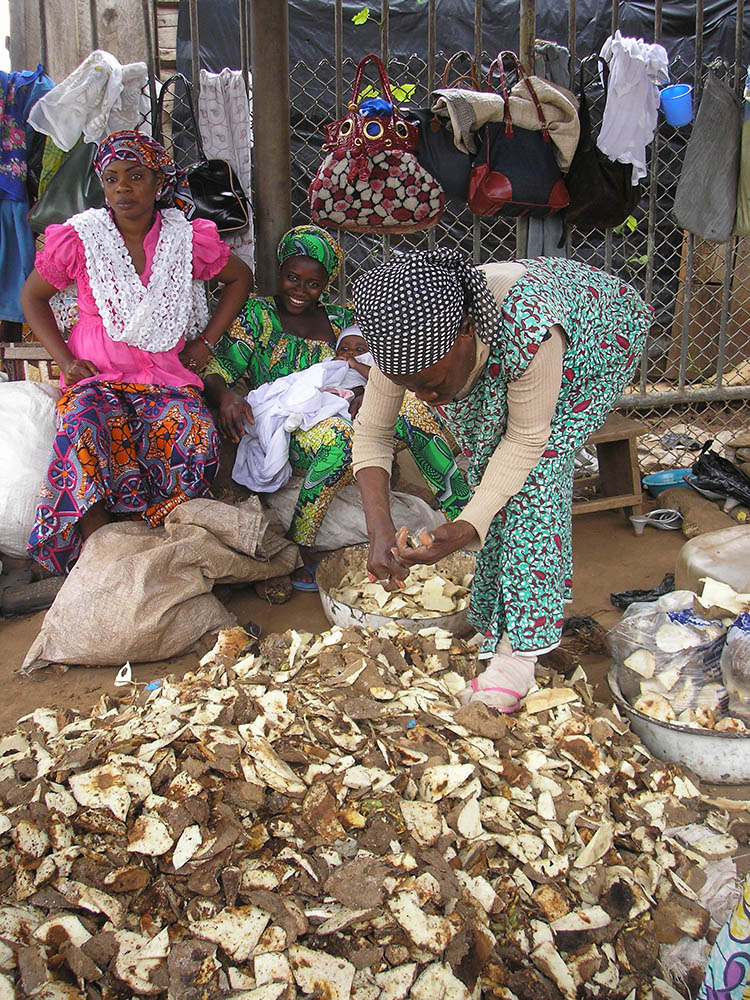
The 16th Triennial Symposium of the International Society Tropical Root Crops (ISTRC) this week is hosted by the Federal University of Agriculture, Abeokuta, Nigeria. More than 300 root and tuber crops scientists will attend the meeting to share important new discoveries from their recent work on these commodities which are important to the livelihoods of many millions of people around the world. Professor Andrew Westby, Director of NRI, comments as follows:
As President of the Society, I am due to share the platform with Dr Akin Adesina, Honourable Minister of the Federal Ministry of Agriculture and Rural Development and former Vice President of the Alliance for a Green Revolution in Africa. He spearheads the Ministry's Agricultural Transformation Agenda (ATA) that is creating a roadmap to the country's self-sufficiency in food production, boosting youth employment, and shoring up the nation's foreign exchange reserve. I anticipate that he will share progress on the Cassava Transformation Agenda (CTA), an important initiative within the ATA.
Nigeria's plans for partial replacement of imported wheat flour with high quality cassava flour (HQCF) have received significant media attention. At least two industrial bakeries are producing bread containing 20% HQCF. This is one of several initiatives to develop markets for cassava, a major crop in the country. Such important initiatives provide significant opportunities for translating the research of scientists at the ISTRC Symposium into practical action that will benefit millions of smallholder households. These include efforts to increase crop yields, overcome pests and diseases, develop "seed systems" and markets, and to process technologies.
The NRI-led Cassava: Adding Value for Africa (C:AVA) project, supported by the Bill and Melinda Gates Foundation, is working with partners in Nigeria, Ghana, Tanzania, Uganda and Malawi to develop value chains for HQCF and related products to benefit smallholder farmers and processors. Value chains have been successfully established in each country. In Nigeria the project team are collaborating with the Federal Ministry of Agriculture and Rural Development to increase the amount of HQCF produced by small and medium scale enterprises.
The C:AVA project is an important part of NRI's research and development Programme on tropical root and tuber crops, which includes the European Commission funded "Gratitude" project, that aims to overcome losses and add value to wastes in cassava and yam value chains, and the new "CassavaGMarkets", which was described in an earlier post.
Capacity strengthening of early career researchers is an important part of our Programme. With financial support from the European Commission's ACP Science and Technology Programme, and in collaboration with the ISTRC and partners in Africa, Caribbean and Pacific, a capacity building project has established a community of practice with over 600 members and has supported the training of over 400 researchers. Some of these scientists are being supported through this project to participate in the ISTRC symposium, exposing them to the latest developments in the subject area.
Andrew Westby

